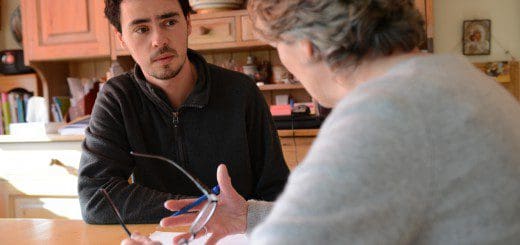Would you just stand there?

Photo Credit: roseannadana Flickr via Compfight cc
The other day I was in the university bakery and someone started to have a panic attack. Once you are practicing medicine for a while, telling between “sick” and “not sick” becomes an instinct. It means you know by pure observation how much to worry that someone is in a life-threatening situation. If you are talking and screaming, I know you are breathing very well. If you are holding yourself up on the counter and your cheeks are flushed, I know you have good strength and enough blood flow going to your muscles, skin, and brain. I know not to worry.
The problem was that other people not in medicine should not know that, yet everyone (almost all young college students) stood around staring and ignoring this person as he screamed for water. I looked around for water but before I saw it, a young woman quickly brought over a bottle. I told the young person having the attack I was a doctor and to take some deep breaths and sit on the floor. He said, “Its OK, I get panic attacks. I’m feeling better,” and his cheeks started to lighten. The young woman said, “I have anxiety too!”
He ended up being fine, but this situation made me think. Why didn’t anyone help when most of them shouldn’t know what a life threatening situation looks like? Although they are not dying, someone experiencing a panic attack feels like they are and that something is seriously wrong. Just like if you are literally falling your instinct is for your brain to send signals to your muscles to catch yourself, when they feel like they are emotionally falling, their brain sends signals to have a heightened sympathetic response (fight or flight). Their heart actually speeds up, blood rushes to their skin and muscles – getting them ready to fight or to flee – they experience real physiologic changes which change how their body is functioning at the time.
So what does “all in their head” really mean? when everything is all in our heads – how we think, how we move, how we breathe every day. Without our brains and the signals it sends, we would not be alive.
I am privileged to hear many human stories each day. This has opened my mind to the human experience beyond measure – that I cannot go back to what my life was like without knowing these stories. This is why I think when you experience mental illness, like this young woman had, you instinctually know that even though someone is really okay (not going to die), they feel like they might, and you can empathize and be supportive as they get through it. When you live in the world and don’t hear many other human stories, you can only interpret it by what you know.
Seeing someone else struggle can be upsetting – especially if you are struggling yourself – and especially if you think there is nothing that helps. After you see many people struggle through the same thing, and many people get better through treatment, and yourself get better through treatment – then you get the privilege to know what I know and know what this young woman knows. That emotional pain is just as real as physical pain, and that there are many ways to help it, one of which is lending a helping hand and giving someone ice when they bump their head, or water and a shoulder when they feel the world is just too much for them at that moment.
The young woman said after she shared her anxiety, “Oh, what are your triggers? Mine are school and sometimes…” – she kept going on and on. I told her probably talking about her anxiety right when this person was very anxious was not a good idea. But I’m glad she could just talk about it in the middle of the bakery like the regular part of the human experience it is for many of us. I hope one day, more people will be like her.
Have you had a similar experience of lending a hand to someone with emotional pain? Did someone ever lend you a hand? Please share below.




Recent Comments